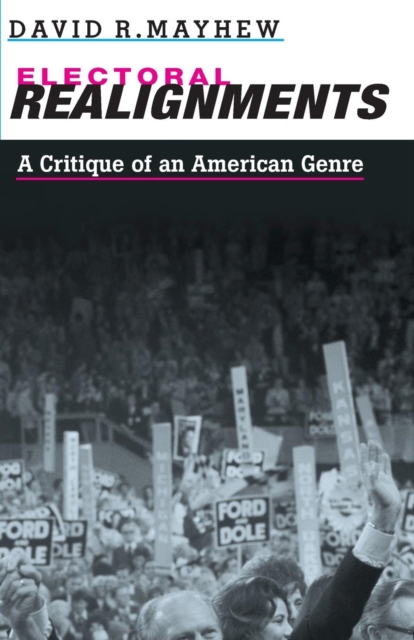
Electoral Realignments : A Critique of an American Genre Paperback / softback
by David R. Mayhew
Part of the The Institution for Social and Policy Studies series
Paperback / softback
Description
The study of electoral realignments is one of the most influential and intellectually stimulating enterprises undertaken by American political scientists.
Realignment theory has been seen as a science able to predict changes, and generations of students, journalists, pundits, and political scientists have been trained to be on the lookout for “signs†of new electoral realignments.
Now a major political scientist argues that the essential claims of realignment theory are wrong—that American elections, parties, and policymaking are not (and never were) reconfigured according to the realignment calendar. David Mayhew examines fifteen key empirical claims of realignment theory in detail and shows us why each in turn does not hold up under scrutiny.
It is time, he insists, to open the field to new ideas.
We might, for example, adopt a more nominalistic, skeptical way of thinking about American elections that highlights contingency, short-term election strategies, and valence issues. Or we might examine such broad topics as bellicosity in early American history, or racial questions in much of our electoral history.
But we must move on from an old orthodoxy and failed model of illumination.
Information
-
Available to Order - This title is available to order, with delivery expected within 2 weeks
- Format:Paperback / softback
- Pages:192 pages
- Publisher:Yale University Press
- Publication Date:11/10/2004
- Category:
- ISBN:9780300093650
Information
-
Available to Order - This title is available to order, with delivery expected within 2 weeks
- Format:Paperback / softback
- Pages:192 pages
- Publisher:Yale University Press
- Publication Date:11/10/2004
- Category:
- ISBN:9780300093650










